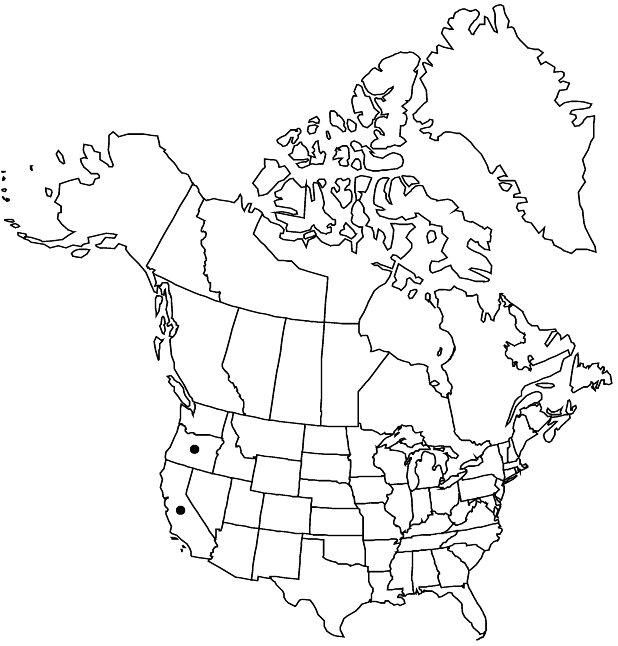Rhododendron occidentale
in W. H. Brewer et al., Bot. California 1: 458. 1876 ,.
Shrubs or trees, to 8(–10) m, usually not rhizomatous. Stems: bark smooth to vertically furrowed, shredding; twigs sparsely to densely multicellular stipitate-glandular-hairy or unicellular-hairy, or glabrous, sometimes only unicellular-hairy. Leaves deciduous; petiole multicellular eglandular- or stipitate-glandular-hairy and unicellular-hairy; blade ovate or obovate to elliptic, (2.5–)3.5–8.2(–10.8) × 1.2–2.9(–3.6) cm, thin, membranous, margins entire, plane, ciliate, eglandular-hairy, sometimes also stipitate-glandular-hairy, apex acute to obtuse, often mucronate, abaxial surface glabrous or sparsely unicellular-hairy, often also stipitate-glandular-hairy (or, rarely, stipitate-glandular- and eglandular-hairy), adaxial surface sparsely scattered, multicellular eglandular- and/or stipitate-glandular-hairy and unicellular-hairy, or glabrous. Floral bud scales sparsely to densely unicellular-hairy abaxially, rarely also sparsely eglandular- or stipitate-glandular-hairy, margins unicellular-ciliate, or with glands and cilia mixed, or glandular. Inflorescences 3–15-flowered; bracts similar to bud scales. Pedicels 9–26 mm, stipitate-glandular- and, sometimes, also eglandular-hairy. Flowers opening with leaves or after they have expanded, erect to horizontal, fragrant or mephitic-scented; calyx lobes 1–4(–9) mm, often stipitate-glandular- and/or eglandular-hairy, sometimes also unicellular-hairy, margins usually stipitate-glandular-hairy; corolla white with contrasting yellow blotch on upper lobe, white and pink or salmon, or pink with orange blotch on upper lobe, rarely white with yellow lines at throat, or with tube white to red, funnelform, 30–58 mm, stipitate-glandular-hairy and, rarely, also eglandular-hairy, otherwise sparsely to moderately unicellular-hairy or these hairs absent on outer surface, petals connate, lobes 13–29 mm, tube gradually expanding into lobes, 15–29 mm (equaling or longer than lobes); stamens 5, much exserted, ± unequal, 40–75 mm. Capsules borne on erect pedicels, 12–22 × 4–14 mm, multicellular stipitate-glandular-hairy, sometimes also eglandular-hairy, otherwise sparsely unicellular-hairy (unicellular hairs rarely absent). Seeds without distinct tails, flattened portion of testa well developed at each end; testa expanded, dorsiventrally flattened, ± loose. 2n = 26.
Phenology: Flowering spring–summer.
Habitat: Moist, wooded slopes and canyon bottoms, along streams, thickets, bogs, serpentine ridges, ocean bluffs
Elevation: 0-2700 m
Discussion
The flowers of Rhododendron occidentale show an exceptional range of variation in color.
Selected References
None.
